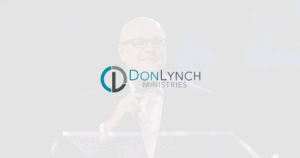 Five hundred years ago, Martin Luther led us out of the dominating leadership paradigm of Roman Catholicism. Instead of producing a New Testament form of kingdom leadership, however, the protesters or Protestants, developed their manmade government structures to guarantee that they would never fall back into a papal dictatorship again.
Five hundred years ago, Martin Luther led us out of the dominating leadership paradigm of Roman Catholicism. Instead of producing a New Testament form of kingdom leadership, however, the protesters or Protestants, developed their manmade government structures to guarantee that they would never fall back into a papal dictatorship again.
They did not visit the Bible for this new polity and policy. They used proof-texting passages to rebound off Roman error. They met themselves in the middle about titles, but they stretched themselves far enough from the end point of human dictatorship to empty the leadership of the kingdom of its Biblical order.
This continued through the development of Christianity, leading up to the twentieth century. A breath of fresh air blew through the kingdom from the early 1900s to the early 2000s with a variety of odd twists and turns. Along the way, a more Biblical pattern formed at the same time, a new Evangelicalism arose.
Somewhere along the line, church-growthism became so dominant in its influence among them that it erased the kingdom leadership dynamics altogether. They reacted to the restoration of kingdom leadership dynamics, choosing to hold onto “pastor” and “teacher” while making evangelist the recruitment arm of leadership. They not only ignored apostle and prophet, but they also condemned them to hell.
So, we staggered into the 2010s with an apostolic restoration that failed to mature into a Reformation, and a deteriorating evangelicalism embracing humanism and church-growthism at the expense of kingdom dynamics.
During that period, evangelicals emptied the church of nearly every kingdom leadership principle, process, and protocol designed and defined by the King for discipling. The method and manner of maturing saints were stored in the attic or basement, and the church fed by marketing, entertainment, and event planning moved onto the main floor.
At the same time, the effort to mature kingdom leadership faltered severely because of a heady exaggeration of the authority and power of apostles who wished reestablish themselves at the expense of the other four dynamics of leadership. The contrast between a pastor-led and an apostle-led “church” was so severe that disgust and disdain for all but apostles diminished the design and exaggerated the definitions.
During the wild ride of the sixties and seventies, we lost kingdom culture, and we did not even know we lost it. During the hectic and harrowing haste of the eighties and nineties, losing kingdom leadership dynamics did not even ripple the surface of evangelicalism. At the same time, when the apostolic restoration should have begun with the restoration of kingdom and kingdom culture, it gave itself to becoming the modern improvement or Next Step in church-growthism.
The missiology of the American church scene changed from discipling to accumulation, until accumulating believers is now the only measurement of success for the modern American church. At the same time, the apostolic restoration stalled to a standstill because it tried to use the same method of measurement.
To prove that apostle still existed, they accumulated some. To show that prophets still existed, they accumulated some. They ignored accumulating or normalizing teachers, evangels, and shepherds within the restoration as if these were not even important or “once we get apostles back, everything else will fall into place.”
They didn’t. A working definition of these offices remains something apart from the accumulation of apostles and prophets. And, these two offices still make a run for the most attention, one at the expense of the other.
As we approach the Roaring Twenties and the New Era Reformation, we have a heady sense of anticipation, but we still have a lot of work to do in a short period. God is ready. We are not. God is going to act in powerful ways. We do not yet have a restored kingdom culture and kingdom leadership dynamics in place to receive and release what He is doing into a kingdom reset.
This great chasm of unpreparedness demands a vigorous response from the fathering leaders of this generation. It requires a new way of training kingdom leaders that recognizes preparation and positioning, as well as personal posturing. It requires a courageous policing of the frauds. It demands a clear and present response to clear and present danger, namely, that we will not bring maturity what God has restored.
We cannot miss what God intends to do next. Ready or not, here He comes! Yet, whole segments of the representative, radical, regional Remnant are not ready to respond to Him in the day of His power. At least, they are not ready to respond with a restored kingdom culture. Yet, kingdom culture is the only foundation upon which to build apostolic order. And, apostolic order is the only way to restore the function of apostles and prophets at the foundational levels.
We have a restoration. We do not have a Reformation. When we do, the modern evangelical church will have to choose between humanism and God, revival and relevancy to the existing culture. At the same time, the apostolic restoration will need to decide if they want to join in the Reformation or maintain the status quo of the restoration because the restoration needs some deep cleaning that only the kingdom culture can give it.
